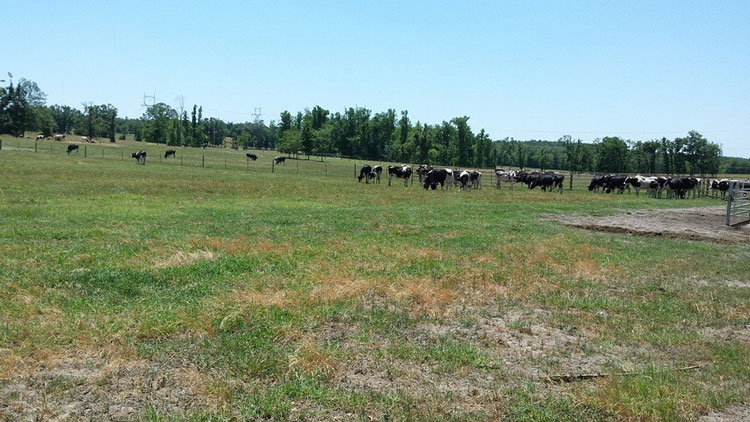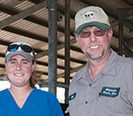
If you haven’t heard the expression, “It's hotter than Georgia asphalt," then you should take a trip to Georgia in the summer and walk across the asphalt without any shoes on. You would end up in the hospital with third-degree burns on the bottom of your feet. I have literally seen an egg fry in a parking lot before.
Needless to say, when it hits July and August, it gets a little hot around here. One of our biggest obstacles in dairy farming is heat stress, and the Rodgers are dairying in the “heart” of the heat.
For the past week or two, the heat index has stayed above 100°F during the day. At times like these, we see behavioral changes within the herds. Cows are not quite as active. Heats are harder to detect. Fresh cows need a little more attention. Overall, the cows just look hot.
We take different measures to ensure that we are doing everything in our power to tend to their summer needs. This has been somewhat easier to control since we moved our milking herd into a freestall barn nine years ago. Under this barn, we can provide different features to tend to their heat-stressed needs. We have cool river sand bedding for them to lie on, 40 fans running throughout the barn, and a high volume sprinkler/soaker system that will wet them down while at the feedbunk.
On the other hand, all of our growing heifers are outside for the most part. We have a few places with a covered feeding area, but other than that, they have to deal with the hot Georgia sun.
During this time of year we have to spray constantly for flies. This requires getting all the different heifer herds up on a regular basis to spray them. In the summer, moving cows around is “work" to them. They lose energy as fast as you can feed it to them. We try and stay on a schedule to work with them in the mornings or late evening so that they won’t have to endure moving so much through the hottest part of the day.
From the time the animal is born until the end of their last lactation here at Hillcrest Dairy, we try and do all that we can to minimize the heat stress these animals have to endure here in Georgia. It’s one of the toughest things to control. But like everyone has heard, the happier the cow is, the fewer problems you will come across and the more milk you will receive!

Mark and Caitlin Rodgers are dairy farmers in Dearing, Georgia. Their “Father and Daughter Dairy Together” column appears every other Thursday on HD Notebook. The Rodgers have a 400-cow dairy that averages 32,000 pounds of milk. Follow their family farm on Facebook at Hillcrest Farms Inc.